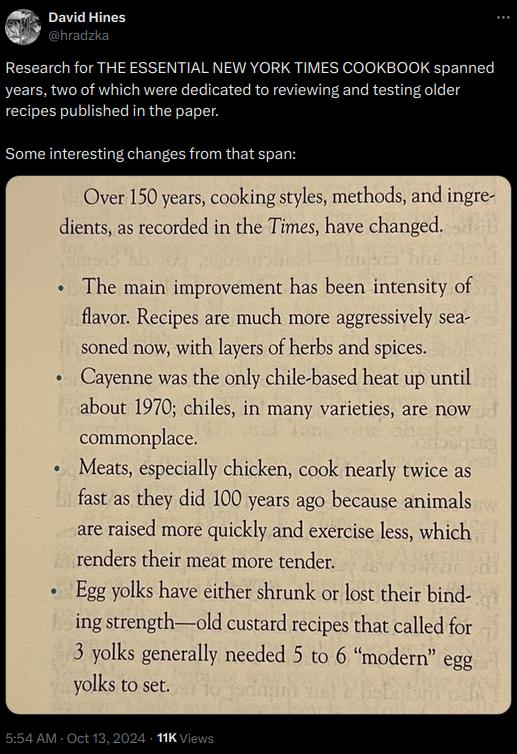this post was submitted on 13 Oct 2024
693 points (99.1% liked)
Science of Cooking
1823 readers
1 users here now
Welcome to c/cooking @ Mander.xyz!
We're focused on cooking and the science behind how it changes our food. Some chemistry, a little biology, whatever it takes to explore a critical aspect of everyday life.
Background Information:
founded 2 years ago
MODERATORS
you are viewing a single comment's thread
view the rest of the comments
view the rest of the comments

I wonder if home-raised chicken eggs are closer to old ones
It might, but you would need to track down a heritage breed. Modern chickens have been selected to grow big and fast. They also lay eggs FAR faster. This, unfortunately, lowers the quality of individual eggs. Poor diet and conditions reduce this further. Home raised chickens fix the diet and conditions, but still use fast laying breeds.
Alternatively, duck eggs tend to be a LOT better. They have not been as heavily selected for laying speed. They also, naturally, have a more intense yoke. I grew up in a pub, in my youth. It took a while, but the customers eventually made the connection between our unusually tastes pies and pastries, and the pair of ducks living in the gardens.
if modern eggs are "worse quality" then old time eggs must have been able to revive people.
Try some non chicken eggs. Chicken eggs are good, but they are still "value bread" vs an "artisan loaf".
Nah, it's not possible anymore. They were pre-atomic chickens and they are lost to the world.
You motherfucker, I believed you. For a split second "pre-atomic chickens" were a thing that existed and then you took it away from me.
I mean they were a thing, they just didn't have bigger yolks. Or did they? We'll probably never know.
Local eggs are more flavorful and paradoxically they're far runnier than store eggs. I'm not sure what causes the runniness